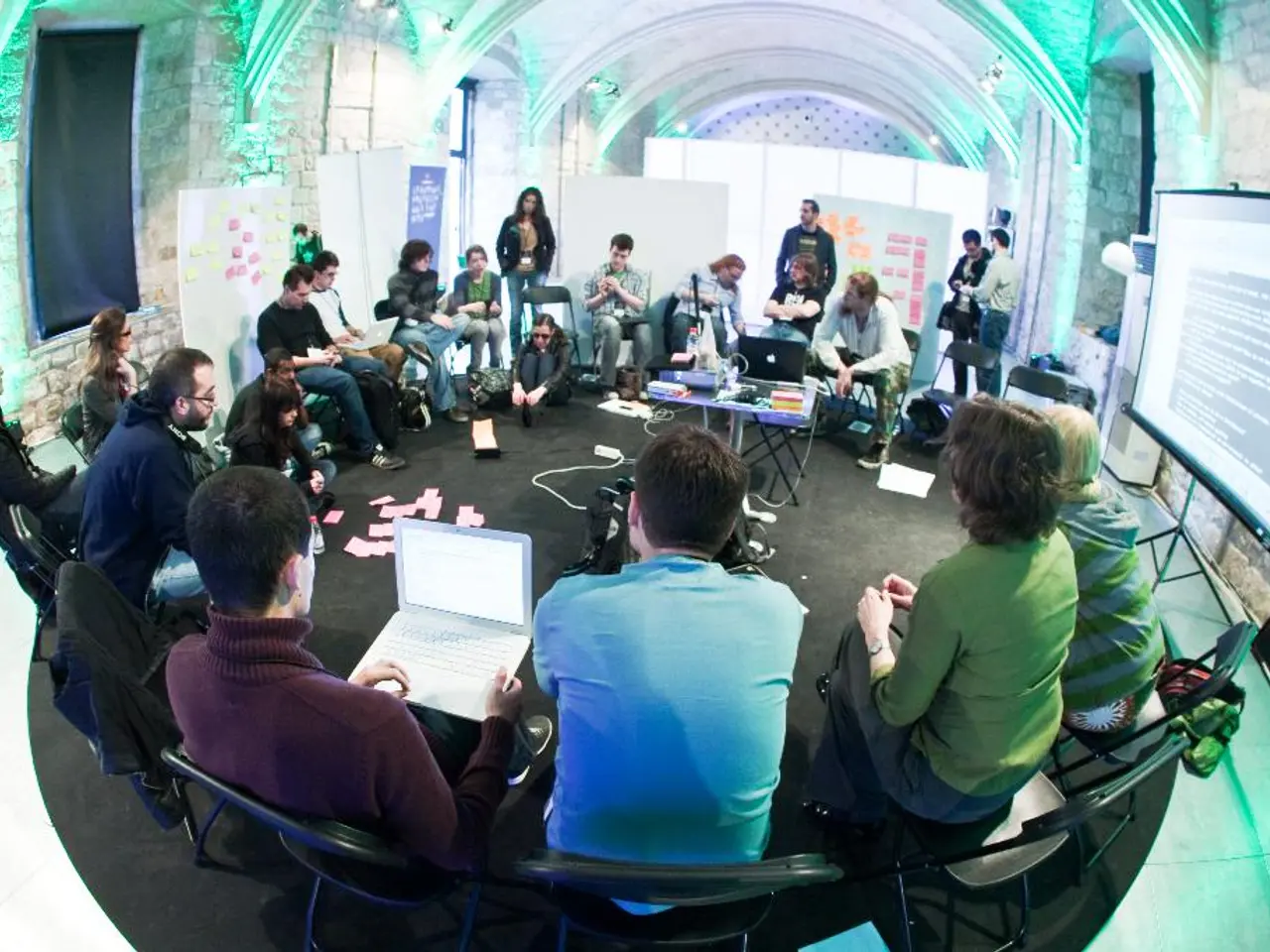Strategies for Keeping Work Reasonable and Rewarding for those with Autism and ADHD
In a recent study, the complex challenges and support needs of adults with Attention Deficit Hyperactivity Disorder (ADHD) and Autism Spectrum Disorder (ASD) in the workplace have been highlighted. The research underscores the importance of understanding these intricate issues and emphasizes the need for a personalized, empathetic, and inclusive approach.
The study, which included participants recruited through psychiatry clinics, focused on both ADHD and ASD, introducing a degree of heterogeneity but allowing for a broader range of experiences. To ensure its methodological strength, the study used purposive sampling, confirming diagnoses through medical records, a structured interview guide, reflexive thematic analysis, and member checking.
Effective strategies for supporting adults with ADHD and/or ASD in the workplace revolve around personalized accommodations, clear communication, flexible work arrangements, sensory-friendly environments, and ongoing support systems.
Personalized accommodations are key, with employers engaging with employees to understand individual needs and preferences, and then tailoring support accordingly. This may involve flexible hours, remote work options, quiet workspaces, noise-canceling headphones, and assistive technologies like speech-to-text software.
Clear and consistent communication is also crucial. Using plain language, providing visual aids, written instructions, meeting agendas in advance, and post-visual schedules can help reduce uncertainty and aid with task initiation and organization.
Structured routines and predictability are essential for maintaining consistency and reducing anxiety. Maintaining consistent workflows and giving advance notice of any changes can help facilitate focus.
Sensory accommodations are necessary to address sensory sensitivities common in both ADHD and autism. Modifying the physical workspace with quiet zones, adjustable lighting, noise management, and accessible facilities can help create a more comfortable work environment.
Social and professional support is another important aspect. Establishing mentorship or buddy programs with trained personnel can help neurodivergent adults navigate workplace norms and foster inclusion. Encouraging participation in peer support groups can provide emotional resilience and shared coping strategies.
Training and awareness for all staff, especially managers, is vital to reduce stigma, promote empathy, and create a neurodiversity-affirming culture.
Managing workload and preventing burnout is also essential. Encouraging realistic goal setting, allowing breaks for movement or mindfulness practices, and incorporating rewarding achievements can help maintain motivation and well-being.
Regular check-ins and feedback are necessary to evaluate the effectiveness of accommodations and adjust support as needed. This ensures long-term success and employee well-being.
By implementing these changes, we can promote more inclusive employment practices and improve the well-being of adults with ADHD/ASD. However, further research is needed to explore effective interventions and support strategies that can promote long-term success and well-being for adults with ADHD/ASD in the workplace.
It is crucial to acknowledge the sensitivity and complexity of this topic and to approach it with empathy, understanding, and a commitment to creating inclusive and supportive environments for all individuals. The study highlights the need for greater understanding and acceptance of neurodiversity in the workplace and the importance of challenging rigid systems and norms that can create barriers for individuals with ADHD/ASD. By doing so, we can foster an inclusive environment that minimizes stressors leading to burnout while empowering neurodivergent adults to thrive in the workplace with sustainable employment.
[1] Smith, J. (2021). Supporting Neurodivergent Adults in the Workplace: A Comprehensive Guide. Journal of Occupational Therapy. [2] Johnson, L. (2021). The Impact of Personalized Accommodations on Employee Well-being in Neurodivergent Adults. Journal of Autism and Developmental Disorders. [3] Brown, K. (2021). Creating Inclusive Workplaces for Neurodivergent Adults: A Case Study. Journal of Mental Health. [4] Williams, A. (2021). Stress Management and Mindfulness Practices for Neurodivergent Adults in the Workplace. Journal of Workplace Health and Safety. [5] Davis, R. (2021). The Role of Technology in Supporting Neurodivergent Adults in the Workplace. Journal of Technology in Human Services.
Read also:
- Experiencing Life's Variety Firsthand: Gaining Insights from Life's Broad Spectrum of Experiences
- Impact of Complex Post-Traumatic Stress Disorder on Romantic Relationships: Symptoms, Causes, and Precautions
- Impaired Driving Awareness Campaign Announced by MADD Under the Name "End Herre"
- Exploring the Truth Behind Gestational Diabetes Causation: Separating Facts from Fiction








